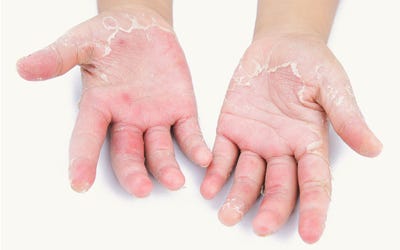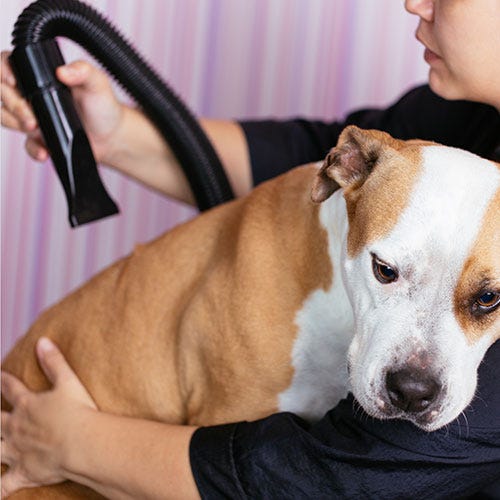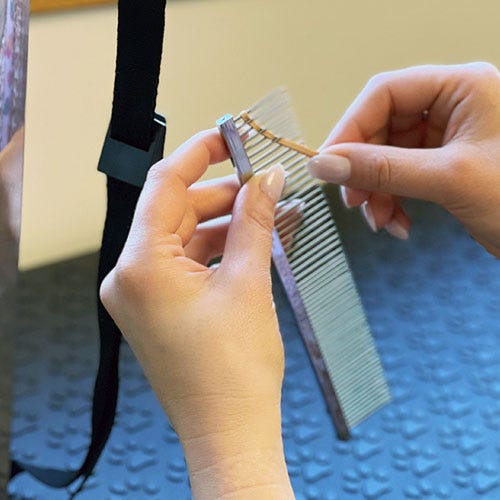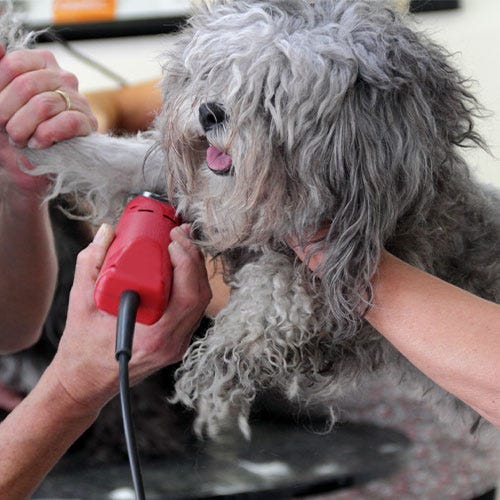Show me a pet groomer, and I’ll show you someone who knows about dry hands. Show me one that lives in a climate that has winter, and those hands may well be chapped, cracked, and sore. In addition, many groomers have experienced dermatitis (skin inflammation) on their hands and arms. There are several reasons for this:
- Frequent exposure to water. The skin has natural surface oils called lipids that help keep moisture locked in the skin. Repeated exposure to water removes those lipids. When this happens, moisture can leak out of the skin.
- Regular contact with shampoo. Pet Shampoo is designed to help remove dirt and oil from pets’ coats. Each time we wash a dog or cat, we expose the skin on our hands and arms to those oil–removal products. Combine that with the water, and you can see that moisture is being stripped from our skin at every turn.
- Contact allergy to preservatives. The shampoos and conditioners we use on pets contain preservatives. Hand lotions do as well. It can be possible to develop a preservative allergy, and repeated exposure can wreak havoc on your skin.
- Continual contact with hair. Yes, that’s right. Pet hair can cause skin irritation. Not only can the texture of it abrade our skin, but pet hair can also carry allergens and irritants on it.
- Mechanical injuries. Injuries from scissors, clippers, sharp claws, and teeth can damage skin, leaving wounds that, at the least, are irritating and, at the most, can let infections get a start.
- Warm air from dryers. The air from our dryers is excellent at removing the moisture from pets’ coats so we can style them. But, sadly, it also blasts moisture from our skin as we work.
Soothing dry skin is easier when you choose the correct products. A walk through a pharmacy will show you that there are lotions, creams, and ointments designed to help our hands.
- Skin lotions are thin and contain a lot of water, and while they offer temporary relief from dryness, they don’t do much to protect your skin.
- Skin creams are thicker and feel heavier. They tend to offer more protection than lotion.
- Skin ointments may feel thick and greasy. Due to their texture, they tend to bond well to the outer layer of the skin, allowing the deeper layers to retain moisture.
A chat with your pharmacist will get you a professional recommendation for what might work best for you. A few more helpful hints follow:
- Avoid wearing jewelry such as rings and bracelets when you work. Water and hair care products can be trapped under the jewelry, furthering irritation.
- Wear gloves when you go outdoors in cold weather.
- Apply moisturizer often during the day, especially after contact with water.
- Before and after work, wash your hands carefully with warm water and mild soap. Glycerin soaps are beneficial when battling dry skin. Next, dry your skin with a soft, absorbent cloth, paying particular attention to wrists, fingertips, and the spaces between your fingers. Apply a high-quality moisturizer and allow it to air dry.
- If your hands are very dry, soak them in warm water for several minutes before bed. Pat them dry, then immediately apply a thick layer of moisturizing ointment and cover your hands with cotton gloves for the night.
If, after following these suggestions, you are still suffering from inflamed, irritated hands, check with a dermatologist. Sometimes only a prescription cream can get your skin back to health. Also, remember to stay well hydrated and eat a balanced diet, building healthy skin from the inside out.










